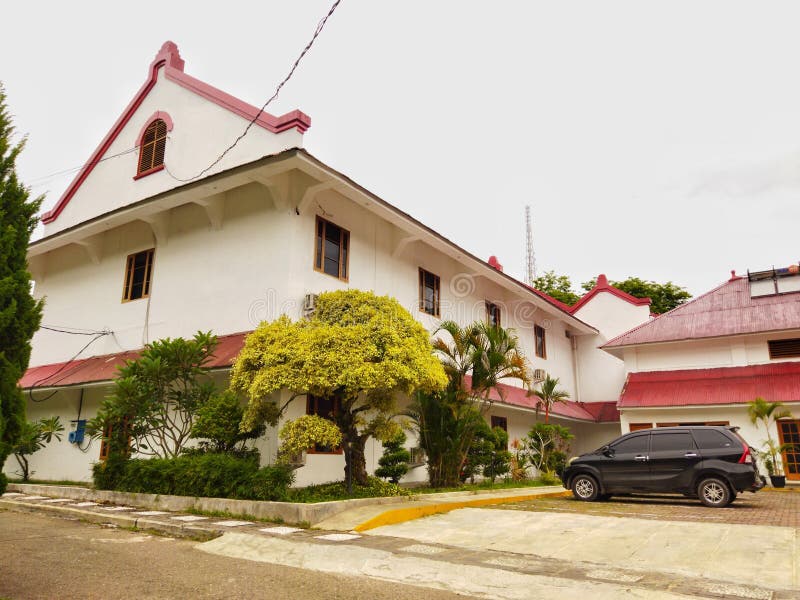Obstacles To Transforming Empty Dutch Offices And Shops Into Residential Spaces

Table of Contents
The Netherlands faces a growing housing shortage, putting immense pressure on the government and developers to find innovative solutions. One promising avenue is repurposing the numerous empty office and shop spaces scattered across the country. However, transforming empty Dutch commercial spaces into residential housing is not without its significant challenges. This article delves into the key obstacles hindering this crucial urban regeneration strategy.
<h2>Regulatory and Planning Hurdles</h2>
Converting commercial properties into residential dwellings often encounters significant hurdles related to regulations and planning. Navigating these complexities requires careful planning and substantial expertise.
<h3>Building Codes and Regulations</h3>
Dutch building codes, primarily designed for commercial use, often present significant obstacles when adapting spaces for residential habitation. The stricter requirements for residential buildings necessitate considerable investment and effort.
- Stricter fire safety regulations: Residential buildings must meet more stringent fire safety standards than commercial properties, requiring substantial modifications to comply.
- Accessibility standards: Adapting spaces to meet accessibility standards for disabled residents can be costly and complex, often involving significant structural changes.
- Outdated systems: Updating outdated electrical wiring, plumbing systems, and other infrastructure to meet current residential codes adds to the overall project cost and timeline.
<h3>Planning Permissions and Permitting Processes</h3>
Obtaining the necessary planning permissions for conversion projects can be a lengthy and bureaucratic process, often characterized by delays and uncertainties.
- Local council regulations and zoning restrictions: Navigating diverse local council regulations and zoning restrictions requires careful planning and potentially extensive consultations.
- Neighbor and community objections: Potential objections from neighbors or community groups can delay the approval process and necessitate compromises on the original plans.
- Lengthy approval timelines: The protracted approval timelines contribute significantly to project delays and increased costs, impacting overall project viability.
<h3>Environmental Regulations and Sustainability Concerns</h3>
Meeting environmental regulations and sustainability standards adds another layer of complexity and expense to conversion projects.
- Energy Performance Certificates (EPC): Achieving the required energy performance certificate (EPC) rating for residential buildings necessitates significant investment in energy-efficient upgrades.
- Sustainable building materials: Using sustainable and environmentally friendly building materials is increasingly important, though often more expensive than traditional options.
- Hazardous materials: Dealing with the presence of asbestos or other hazardous materials adds unforeseen costs and delays to the project.
<h2>Financial and Economic Challenges</h2>
The financial aspects of converting commercial spaces into residential units present substantial challenges, often impacting the feasibility of such projects.
<h3>High Conversion Costs</h3>
Transforming commercial spaces into residential units often involves substantial demolition, restructuring, and the installation of new residential amenities.
- Demolition and restructuring: Adapting existing layouts to meet residential needs frequently requires extensive demolition and restructuring work.
- New amenities: Installing new kitchens, bathrooms, and other residential amenities adds significantly to the overall project cost.
- Meeting building codes: Upgrading to meet updated building codes and standards necessitates additional expenses.
<h3>Funding and Financing</h3>
Securing funding for conversion projects can be difficult, especially for smaller-scale developments, due to the unique risks involved.
- Limited mortgage availability: Traditional mortgages may be less readily available for conversion projects, requiring developers to explore alternative financing options.
- Funding before planning permission: The difficulty of securing funding before obtaining planning permission creates a significant hurdle for many developers.
- Competition for investment: Competition for limited investment capital among various development projects further complicates the funding process.
<h3>Market Demand and Property Values</h3>
The success of a conversion project hinges on the demand for residential properties in the specific location, making careful market analysis crucial.
- Market viability assessment: Conducting thorough market research to assess the viability of the project before starting conversion work is paramount.
- Pricing strategies: Developing appropriate pricing strategies to attract buyers or renters is essential for the project's financial success.
- Market fluctuations: Potential fluctuations in the local property market can significantly impact the overall profitability of the project.
<h2>Technical and Practical Obstacles</h2>
Beyond regulatory and financial aspects, several technical and practical obstacles hinder the conversion of commercial spaces into residential properties.
<h3>Structural Limitations</h3>
The structural integrity of older commercial buildings might not be suitable for residential use without significant reinforcement.
- Structural assessment: A thorough assessment of the building's load-bearing capacity and structural soundness is crucial.
- Extensive repairs: Potential need for extensive structural repairs or renovations can significantly increase project costs.
- Floor plan adaptation: Adapting existing floor plans to meet residential needs requires careful planning and potentially significant modifications.
<h3>Noise and Light Pollution</h3>
Commercial buildings are often located in noisy or poorly lit areas, requiring effective soundproofing and lighting solutions.
- Soundproofing: Implementing noise reduction strategies, such as double glazing and sound insulation, is essential for creating a comfortable living environment.
- Improved lighting: Improving natural light penetration and installing efficient artificial lighting systems are critical for enhancing the residential experience.
- Air quality: Addressing potential issues related to air quality and ventilation is vital for creating a healthy living space.
<h3>Lack of Amenities and Infrastructure</h3>
Existing infrastructure may require upgrading to support the increased density of residential occupants.
- Parking: Expanding parking facilities and improving access for residents are often necessary.
- Public transportation: Upgrading public transportation and other amenities in the area can improve the attractiveness of the converted spaces.
- Utility upgrades: Addressing potential strain on local utilities and services, such as water and electricity, is critical.
<h2>Conclusion</h2>
Transforming empty Dutch offices and shops into residential housing presents a valuable opportunity to address the housing shortage, but significant obstacles remain. Successfully navigating the complex regulatory landscape, overcoming financial hurdles, and addressing the technical challenges require a collaborative effort between developers, local authorities, and investors. Streamlining processes, implementing effective policies, and exploring innovative solutions are vital for unlocking the full potential of this urban regeneration strategy. Let's work together to find effective and sustainable solutions for transforming empty Dutch commercial spaces into much-needed residential housing.

Featured Posts
-
 Googles Veo 3 A New Era In Automated Video Creation
May 28, 2025
Googles Veo 3 A New Era In Automated Video Creation
May 28, 2025 -
 The Clooney Jackman Broadway Rivalry A New Chapter
May 28, 2025
The Clooney Jackman Broadway Rivalry A New Chapter
May 28, 2025 -
 Arsenal Linked With Surprise Move For Liverpools Luis Diaz
May 28, 2025
Arsenal Linked With Surprise Move For Liverpools Luis Diaz
May 28, 2025 -
 Lotto Winner Still Unclaimed Winning Ticket Location Revealed
May 28, 2025
Lotto Winner Still Unclaimed Winning Ticket Location Revealed
May 28, 2025 -
 Us Envoys Gaza Ceasefire Push A Deal On The Table
May 28, 2025
Us Envoys Gaza Ceasefire Push A Deal On The Table
May 28, 2025
Latest Posts
-
 Sanofi Acquiert L Anticorps Bispecifique De Dren Bio Un Portefeuille Immunologie Renforce
May 31, 2025
Sanofi Acquiert L Anticorps Bispecifique De Dren Bio Un Portefeuille Immunologie Renforce
May 31, 2025 -
 Boxer Munguia Responds To Adverse Drug Test Result
May 31, 2025
Boxer Munguia Responds To Adverse Drug Test Result
May 31, 2025 -
 Sanofi Expands Immunology Pipeline With Dren Bio Acquisition
May 31, 2025
Sanofi Expands Immunology Pipeline With Dren Bio Acquisition
May 31, 2025 -
 Statement From Munguia Following Positive Doping Control
May 31, 2025
Statement From Munguia Following Positive Doping Control
May 31, 2025 -
 Munguias Doping Denial Adverse Test Result Explained
May 31, 2025
Munguias Doping Denial Adverse Test Result Explained
May 31, 2025
